Top 10 Gambia Culture, Customs, and Etiquette
The Gambia may be the smallest country in Africa, but when it comes to culture, you know you won't be disappointed. The Gambia has a strong sense of culture ... read more...and a rich tradition. With a Muslim majority, these traditions are highly valued by many in the country and are still practiced today. Here is a list of Gambia culture, customs, and etiquette.
-
The traditional kind of clothing for Gambian women and men tends to be long and free-flowing clothes. For women, they tend to wear clothes down to their feet as well as up to their wrists. This is called a grandmuba which comes with an undergarment called a malan which is a couple of metres of cloth which is wrapped around the waist as an underskirt.
Such traditional apparel tends to come in a multitude of vivid colours, waxes and designs. The essential point is that such clothing should cover most parts of your body except for the hands and feet. Ladies should cover their heads with a headdress called a musorr or Tiko. African women in the homes, doing chores or cooking, often wear a combination of Western and African styles, with T-shirts or other blouses plus a wrapper.
When out in public, women are more often seen in traditional garb than in Western wear, though many businesswomen will wear Western-style dresses with an African flare. As with men, Headdressyoung women and girls are seen in American-style clothing more often than the older ladies do. For special occasions, such as weddings or naming ceremonies, both men and women usually abandon the plain cotton and opt for African clothing made from beautifully coloured and embroidered fabric, sometimes interwoven with strands of glimmering threads.
Keeping in line with the Muslim faith many men tend to wear the Kaftan which is worn in a very similar way to the grandmuba. It is a full-dress, ankle-length, long-sleeve clothing which is also known as the fataro, jalabe or shabado. A variation of this is the 3 piece suit called nyeti abdu which comes with trousers called a chaya or the waramba. Such dress for men is very often embroidered in the elaborate gold coloured thread on the chest area and sometimes the end of the sleeves and back area. This male attire is topped off with a skull cap which is also usually embroidered in elaborate designs along the rim.
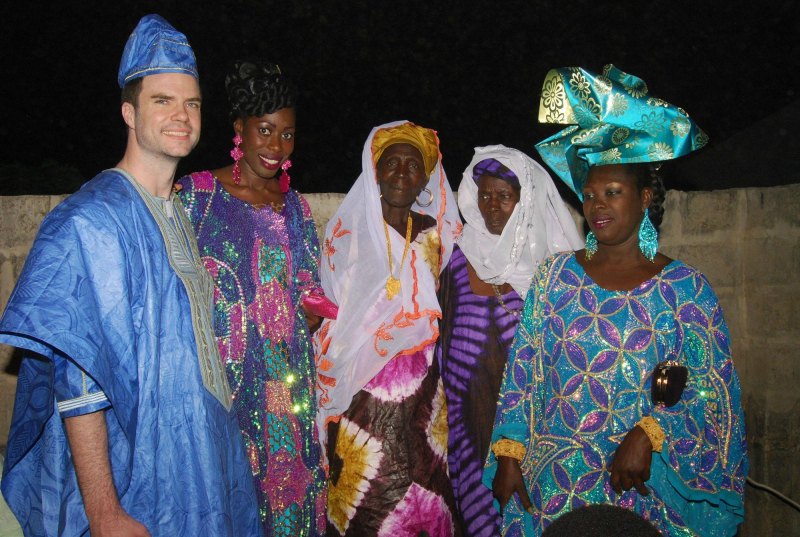
noce4shop.com 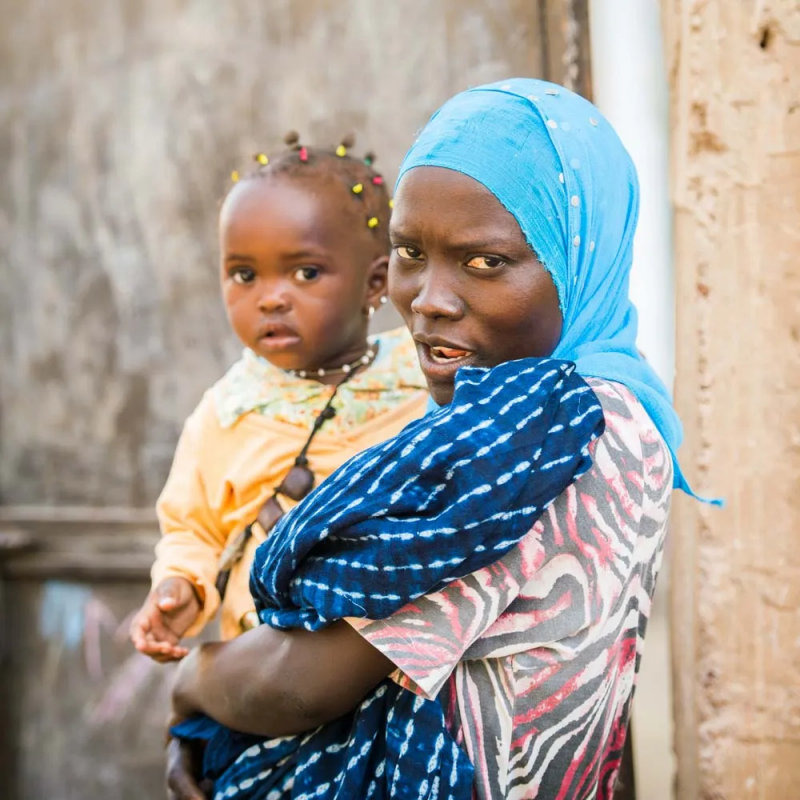
baldhiker.com -
When a typical Gambian family sits down to eat, they gather around a communal bowl that contains a mound of rice with a sauce on top or mixed rice with vegetables in the center, such as Benachin. It is then laid out on a mat. Depending on the circumstances, you may be given your own bowl or plate of food to eat as an honored guest. Don't be surprised if you visit a family and see them eating and are invited to join them for a meal. This is standard dining etiquette in Gambia.
The first rule about eating food around a communal bowl is to first wash both hands and then take off your shoes before sitting down on the mat. Indeed shoe removal should be done when entering any family room or hallway. You may be offered a short stool to sit on. In strict religious families, particularly up-country and with the Mandinka tribe, women and men eat separately while the kids go to either bowl.
Do not begin eating until you see your hosts begin eating, and they will usually say the Arabic word "Bismillah," which is an idiom that means "In the Name of Allah." Only use your right hand to eat. If you choose to eat with your family in this manner, shape the rice into an almost egg-shape before eating it. You may be given a spoon, but the above procedure should still be followed. To be on the safe side, it is considered impolite in Gambian society to smell food in front of others before eating it. Furthermore, even if you are not hungry, declining a meal is considered impolite, so try to take a couple of mouthfuls and chew slowly.
Keep conversation to a minimum while eating, but do mention how delicious the meal is. Any food that falls into your mouth or leaves the bowl should be left on the food mat. While eating, you can request a glass of water. Though it may appear strange to Westerners, a quiet but audible belch after a meal is considered polite because it shows you enjoyed the food and ate to your satisfaction.
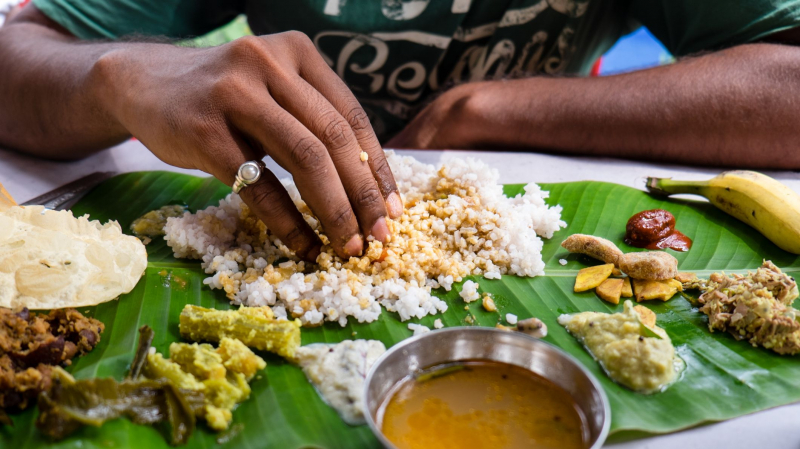
parenting.com 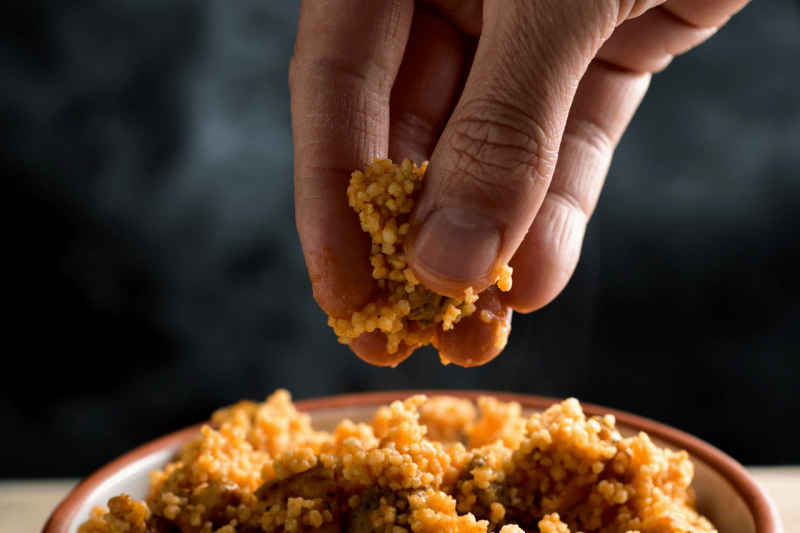
marocmama.com -
A rite of passage is defined as a ritual or experience that marks a major milestone or change in a person’s life, and it can be particularly important for children. The term “rites of passage” was coined in 1909 by the French anthropologist Arnold van Gennep, who observed that these ceremonies are a way to help individuals go through the difficulties of a social transition. Nowadays the term is in common use since it represents a reality deeply ingrained in the human mind.
This is an ancient tradition that almost all ethnic groups in The Gambia follow. It is performed to commemorate the passage from childhood to adulthood. For boys in their teens, the practice is usually carried out on the outskirts of the village, where they will spend months in the bush. The boys will be taught about their culture and their responsibilities as growing adults during this time, and they will have to go through cultural procedures. Some parents now prefer to take their children to health centers to save time and money while also avoiding risks. Girls used to be subjected to a similar procedure, but that has come to an end with the prohibition of Female Genital Mutilation (FGM).
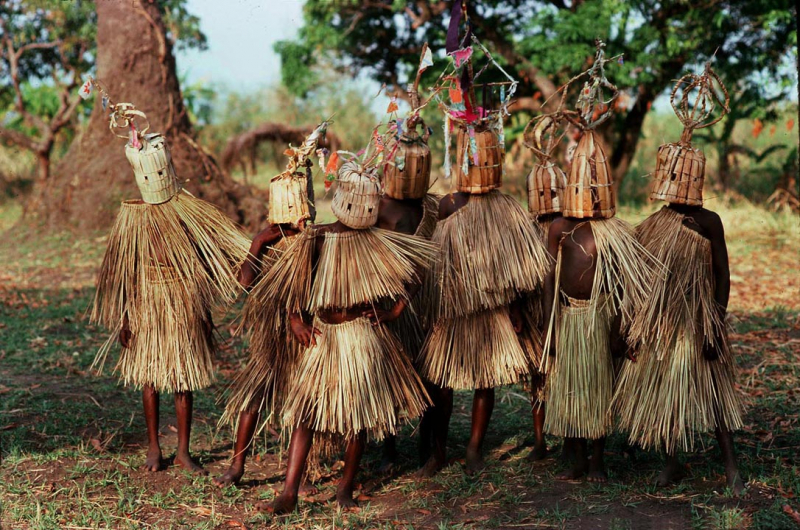
wikipedia.org 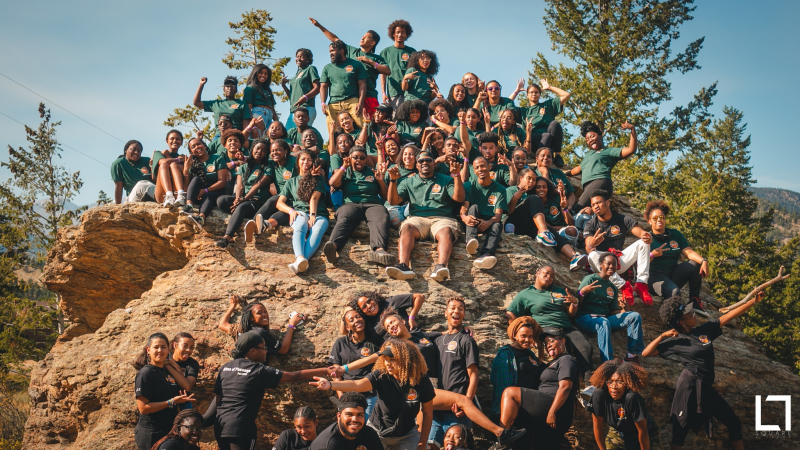
baacc.colostate.edu -
There are several Gambian festivals that have either been part of traditional society or have been created recently. Some are agricultural in origin, with roots in the land, while others are related to the sky above, such as rainmaking festivals involving village women.
There is widespread agreement that festivals have the potential to communicate or affirm the values of Gambia's society and strengthen ties among its members. Such gatherings provide a forum for the release of pent-up social tensions as well as an escape from the monotony of everyday life. Other types of ceremonies are not covered in this section. These range from elaborate Ngansinba - female leader - inauguration ceremonies to initiation cult ceremonies.
While multi-ethnic expressions are increasing, the Gambia's groups continue to struggle to reaffirm their identities. Dankunku (Maribantang Cultural Festival), Banjul Demba Festival, and the Gambian-African Festival at Kanilai all confirm a cultural renaissance with distinct claims and identities.
Because Africa is more vulnerable than ever before to external influences, particularly globalization. In addition to changes in the physical markets, Gambians are facing a cultural assault. Today, more young people than ever before are listening to foreign, imported music and dressing in foreign fashions.
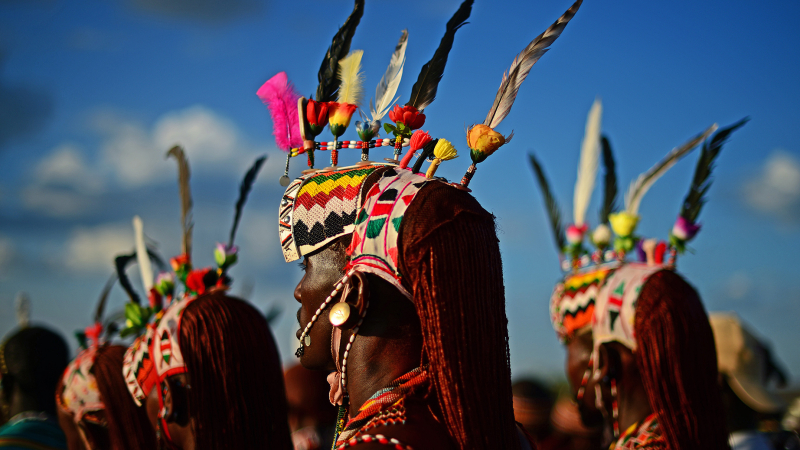
theculturetrip.com 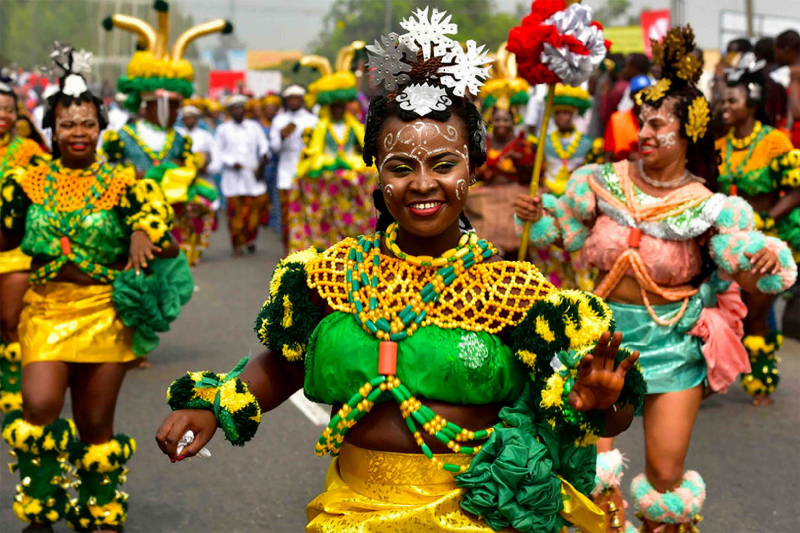
guardian.ng -
Traditional greetings and etiquette are very important to Gambians because they serve to either reinforce existing social bonds or to familiarize and create new social ties. Such formalities are influenced by Islam, and much of it can be traced back to the ancient empires of the Mandinka, Wolof, Serahule, and other West African tribes. Always take at least 15 seconds (30 seconds or more for people in authority) to say hello and how the family is doing before getting down to business. Anything less is interpreted as disrespect or as you looking down on them. If you do not heed the preceding advice, your life will be made extremely difficult.
Remember that shaking hands with your right hand is a required form of greeting, unless you are visiting someone who has recently been bereaved, in which case it is the cultural norm not to shake hands with them. Though it may seem obvious, never greet anyone who is praying because they will not respond. Furthermore, do not give anything to people with your left hand, as this is considered an insult because it is the hand used for toileting and other unsanitary actions.
You may believe that such traditional greetings are a waste of valuable time, but the culture is different, and they are the essential key to successful community interaction. It should be noted that women are not expected to shake hands, particularly in rural areas.
Hugging is acceptable between the same and opposite sexes, but they must be related or well-known friends, and it is usually done after a long period of not seeing each other in their daily lives. Kissing on the cheeks is not uncommon between women or between men and women, but they should be related or well acquainted.

afktravel.com 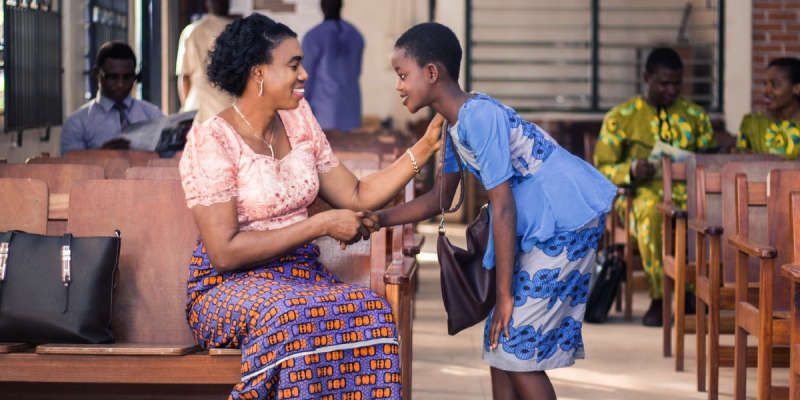
360afric.com -
The marriage process among Muslims in the Gambia is a relatively simple affair. If a man is interested in wedding a woman, after informing his parents, then male representatives (uncles, brothers, close relatives) of the groom are then sent to the woman's house. They present some Kola nuts & express the groom's interest. If the woman's representatives agree then they set a date for the wedding & announce this to all relatives. Usually, such weddings are held at a Mosque of Jaka but could just as well be held in the woman's home.
Usually, only men are allowed at the Mosque or Jaka ceremony, and the bride and groom are very often barred from attending the gathering! At the ceremony more Kola nuts are handed over as well as some token dowry money maybe between £50 to £100 though this could be higher as it is set by the bride's family. It should be noted that a wedding can take place even if the groom and bride are outside the country and living on different continents. Furthermore, there is virtually no engagement period as it is simply announced a week or less before the wedding date, though arrangements would have taken place one or two weeks prior.
If a Christian woman and a Muslim man are to wed then it could be possible to have a ceremony in the Mosque and a civil ceremony in Banjul at the registry office. Should the marriage turn to talk of divorce then it is up to the man to write to his wife's parents and say in the letter that he is divorcing his wife explaining the reasons why. There then follows a period of talks when a family delegation from the man's family would try to talk to the husband asking him to reconsider his decision. This is something that has to be done under Muslim tradition.
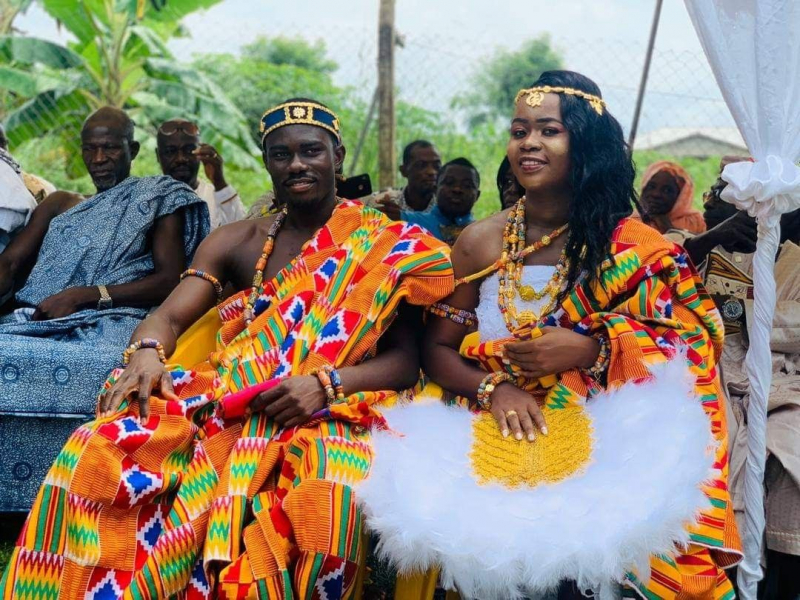
furtherafrica.com 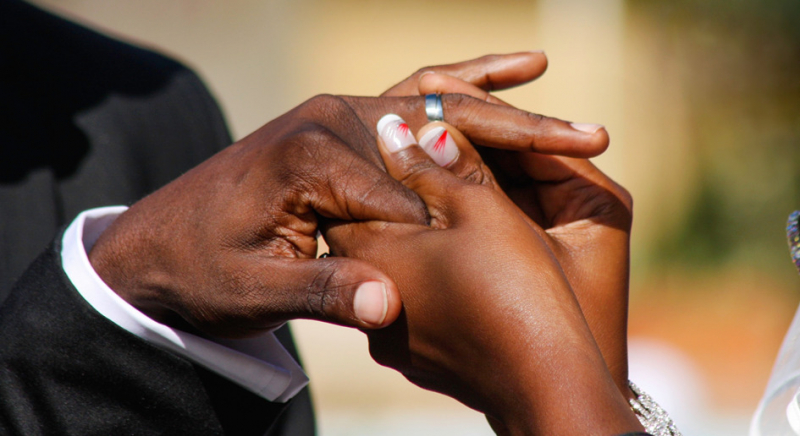
aehnetwork.com -
Punctuality is not often observed in The Gambia and the business concept of ‘time is money’ is approached in a very relaxed and flexible manner. You need to be very patient here. People can arrive for a meeting or function up to four hours later than originally scheduled. People appreciate it, but it may not be returned, so keep that in mind when scheduling meetings. A good idea is to first call to check if someone is at his or her office before leaving for the meeting, or advise people to come on time. Otherwise, you might waste your time in the Gambia.
You shouldn't be surprised if timings differ from the published schedule because Gambians are very lax about keeping to time. As a result, things don't run exactly like they do at home. In the Gambia, it's a running joke that GMT (Greenwich Mean Time) really stands for Gambia Maybe Time.
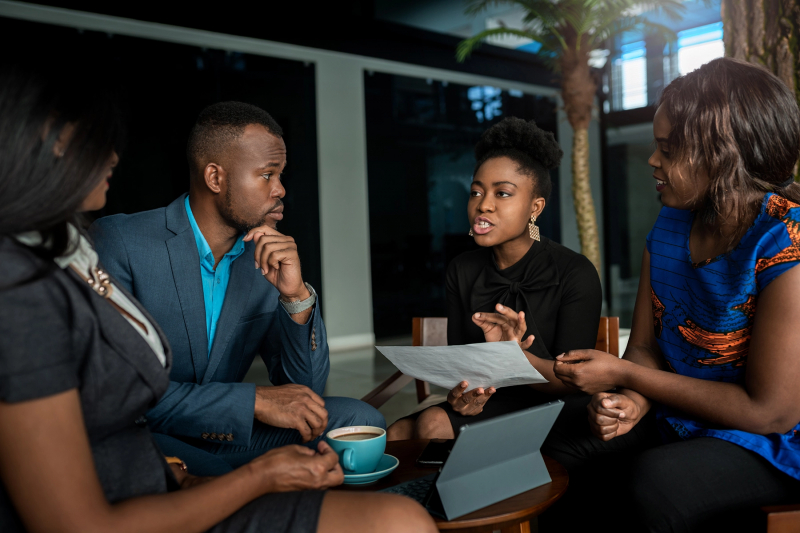
expatica.com 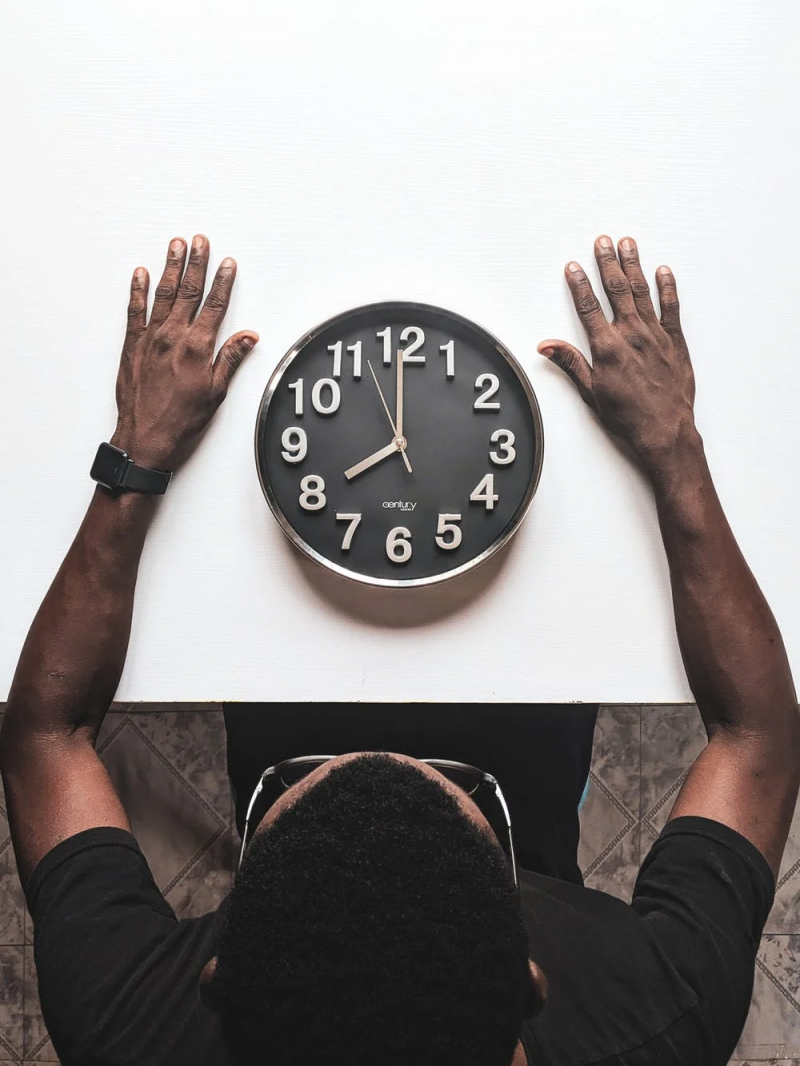
expatica.com -
Except in supermarkets and stores where the prices are marked, bargaining is the common practice when shopping in open markets and many shops. Vendors will not generally bargain on items that are commonly sold by the measure, e.g., a cup of sugar, the quantity of salt or spices, a kilo of meat, a cup of oil, etc. Vegetable and fruit prices, however, will vary according to their availability. In some cases, one might notice there are two price sets: one price for Gambians and another higher price for foreigners or tourists. The difference in price sets will not vary much with food items, but will for fabric, woodwork, craft, and other luxury items.
Many people feel justified in asking more from foreigners given the obvious economic disparity. Being able to use a local language in bargaining and describing merchandise is a great advantage and will delight vendors. However, there is a point at which a vendor will go no further and may become intransigent, and insulted if one persists in undercutting the last stated price. Prices may vary from day to day depending on the vendor’s mood as well as the approach of the customer. Bargaining can be fun and is a great way to make conversation with Gambians and practice language skills.
Vendors will also feel offended if you bargain for an item with no intention of buying it. With regular taxis, the fare is fixed but sometimes bargainable. GPTC buses have fixed fares for every destination. One can also bargain when hiring a taxi, or securing the services of a tailor, smith, carpenter, or mason.

freepik.com 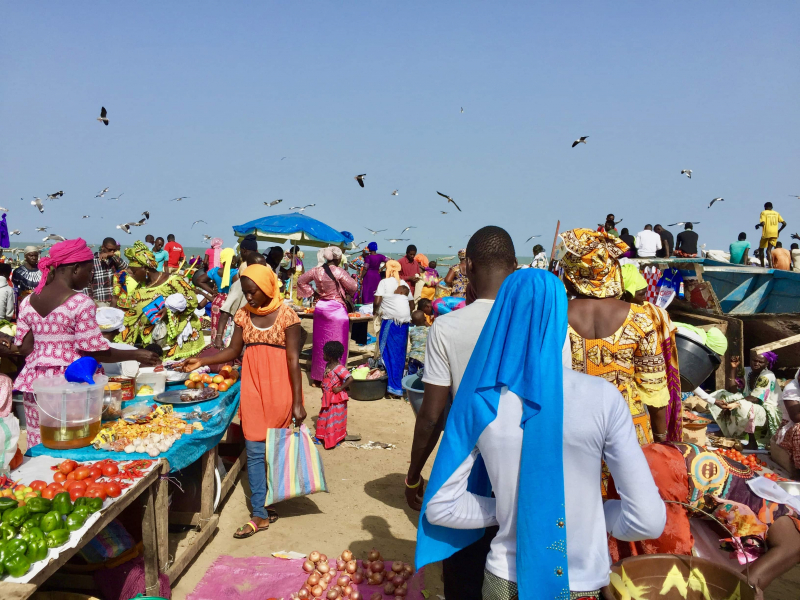
bbc.co.uk -
The family and home are God-given and highly important institutions in The Gambia. The family is involved from the beginning to the last days of one’s life, and this is one reason why children are still highly valued. The family comes to the help and support of its members when one plans to marry, when one’s marriage is in trouble, when one is bankrupt, jobless, sick, old, lonely, bereaved, childless, destitute, in prison, or any other problem. People are expected to be part and parcel of the family regardless of their status and location.
The breadwinners are expected to share with the extended family and must not feel too self-important so as to not associate or take advice from the family, especially the elders. But family splits and disintegration are gradually on the rise and this is partly caused by forces of modernization and globalization, such as industrialization, secular education, individualism, conflict, and abuse of privileges. Despite the pressures, Gambians still believe in family closeness and are endeavoring to keep together.
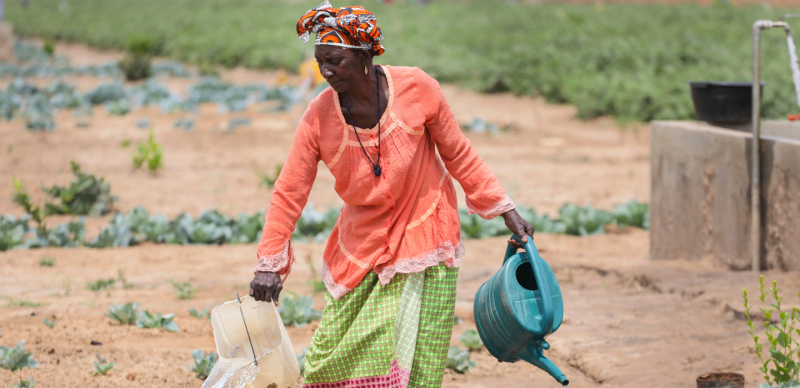
ifad.com 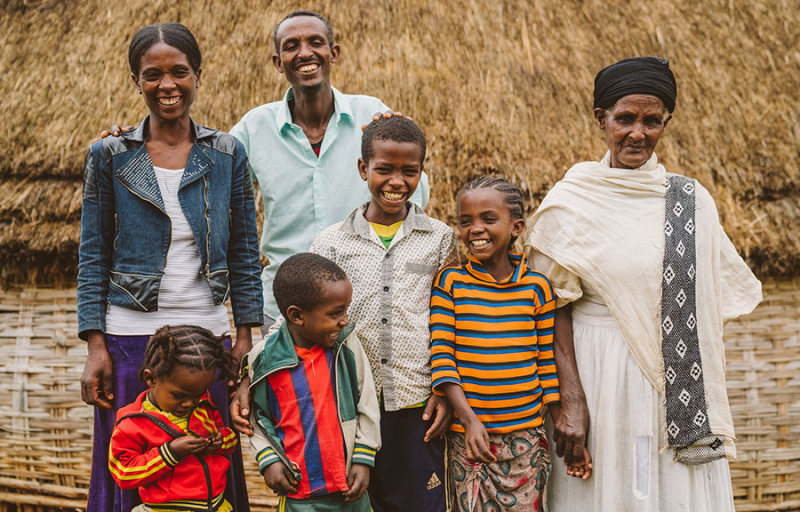
lifewater.org -
The first settlers of this region were animists. They believed that supreme power was possessed by a pantheon of various spirits similar to those of ancient Rome. Idols were worshipped by spilling sacrifices of wine, water, milk or blood on the ground. In ancient days, human sacrifice used to take place in addition to animal sacrifice. Animal sacrifice still happens.
Animists believe in reincarnation, life after death, and a set of morals. Some animist-related shrines are still in existence and even non-animists visit them for blessings. These include the Katchically crocodile pool in Bakau, Folonko crocodile pool in Kartong, Sanimentereng in Brufut, the crocodile pool in Abuko Nature Reserve, and the crocodile pool in Berending.
Christianity came to The Gambia with Europeans, missionary work was very active in the early 19th century. The following churches are in existence in the country today - Methodist, Roman Catholic, Anglican, Baptist, Adventist, Pentecost, Charismatic, Jehovah Witnesses, and the Church of Canaan. Baha’i was founded in Iran in the 19th century. It spread to The Gambia in the 1960s, and the Baha’i National Centre is established in Banjul opposite the Royal Victoria hospital.
Islam was founded in Arabia during the 7th century AD by the prophet Mohammed of Mecca. The religion was introduced through North Africa to West and Central Africa. Although Islam existed in pockets in this region since the days of the Ghana empire, it was the “jihad” or Muslim holy wars during the 19th century that established Islam in The Gambia as a unifying force.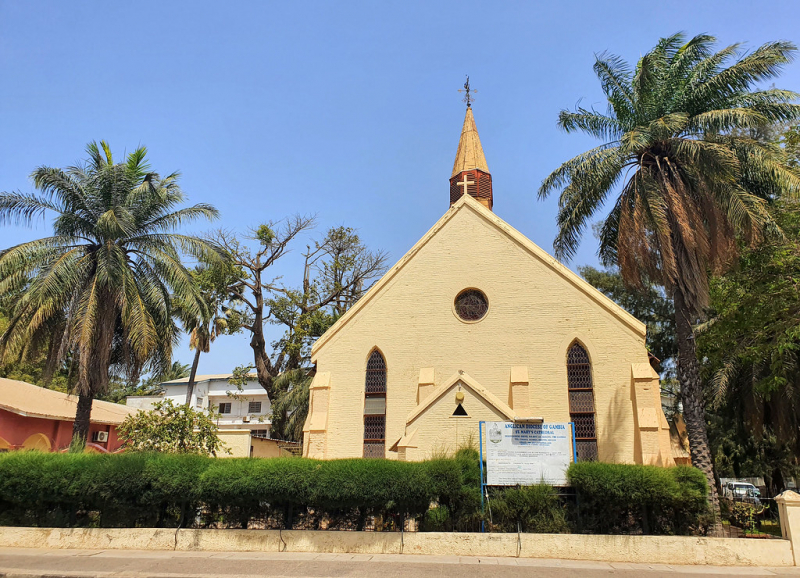
flickr.com 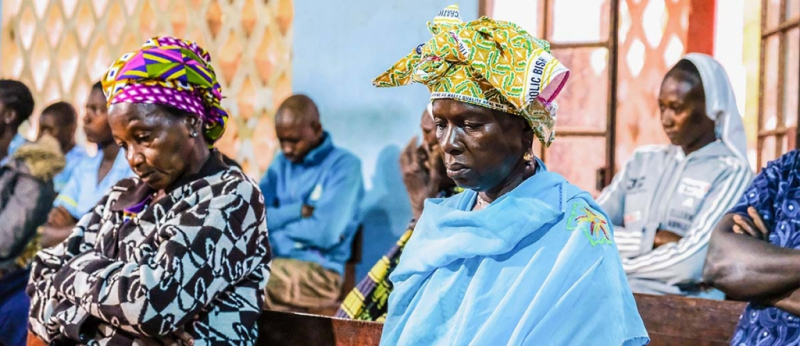
infoans.org































